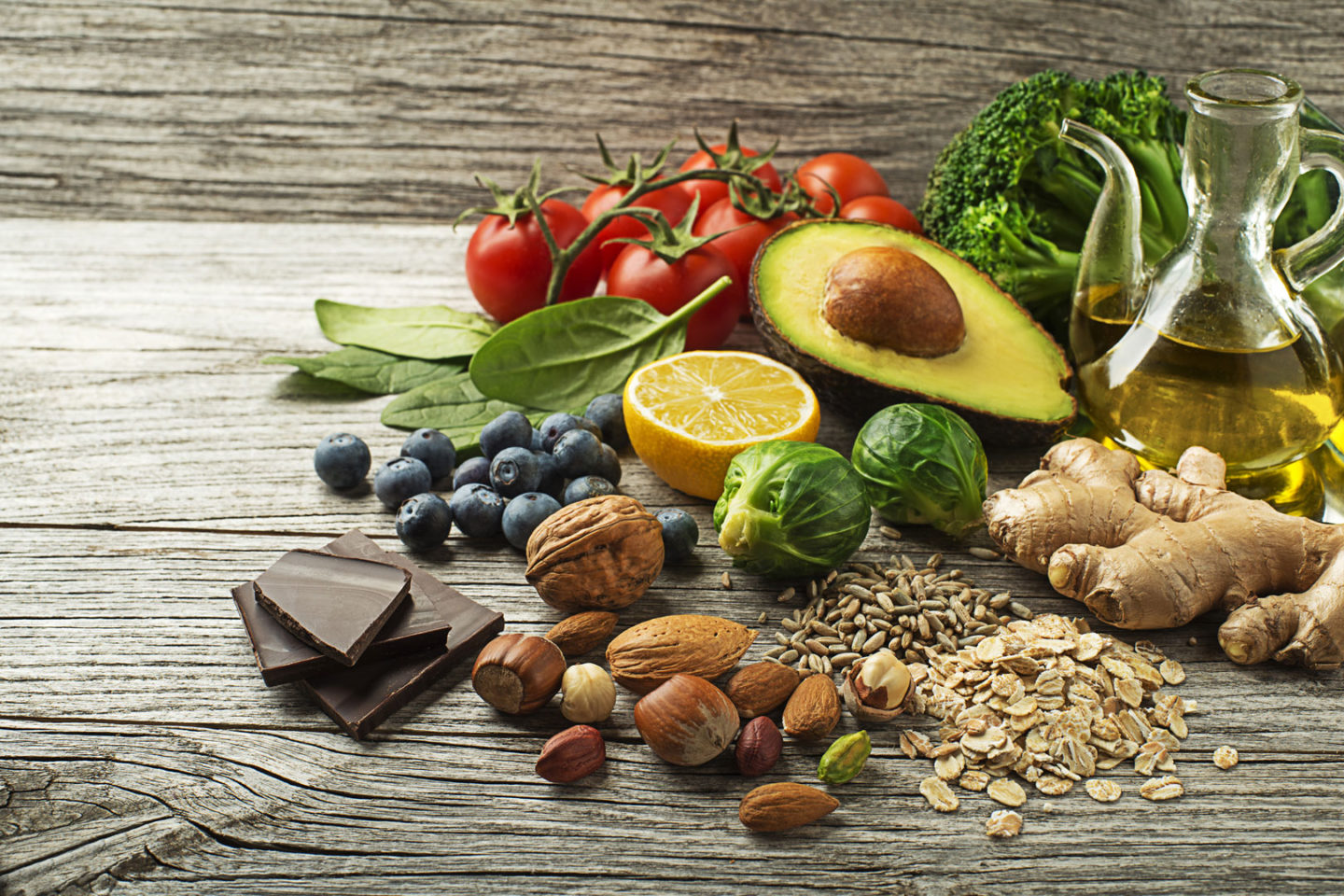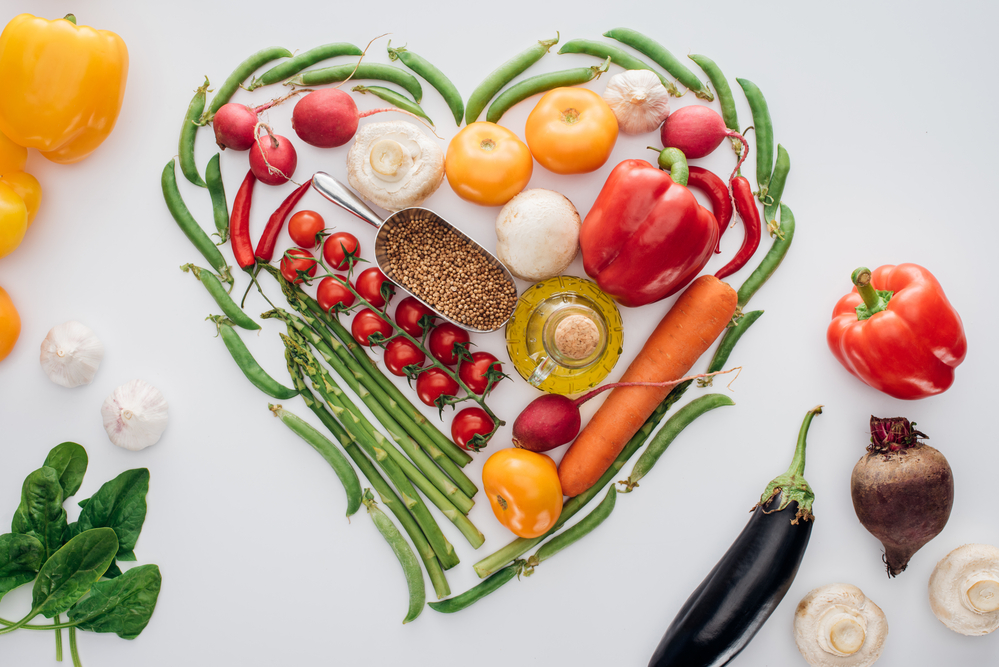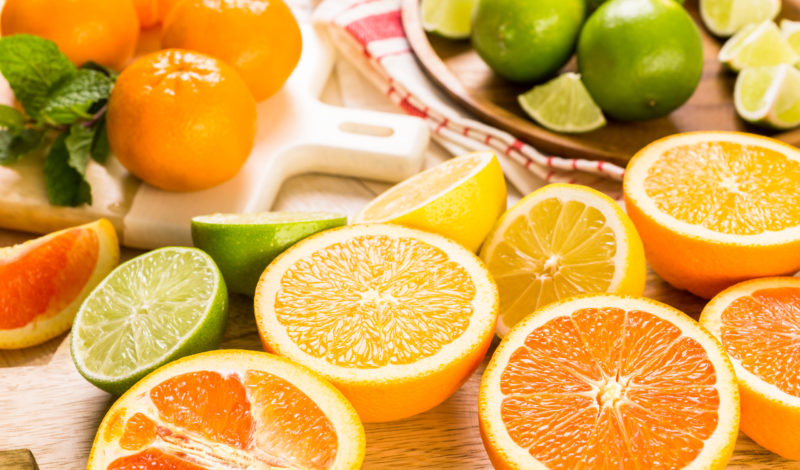The immune system is the biological defence system against pathogens Your immune system protects you from infections and improves your [...]

High Protein: Support muscle building with targeted protein supply
Proteins, i.e. albuminous substances, are among the most important building blocks of the body. They consist of various vital amino acids that strengthen the immune system and are also significantly involved in the process of muscle growth. Therefore, especially strength athletes attach great importance to a diet with a high proportion of protein. You can find out here how the high-protein principle supports muscle growth.

How are protein intake and muscle building related?
Strength training demands a lot from the body. Therefore, especially beginners should pay attention to a high protein intake. A slight calorie surplus of about 300 calories per day is ideal for this. The body needs this additional energy to cope with the demands of training and to supply the muscles with nutrients.
Muscles only grow when they are exposed to a sufficiently strong stress stimulus. This happens during weight training with weights or during bodyweight exercises. However, the actual growth does not take place during training, but afterwards, in the regeneration phase. This is when a process of adaptation takes place in the muscles, which is a reaction to the stress stimulus: the muscle fibres thicken, and for this they need amino acids. Consequently, a high protein intake after training supports the body in building muscle.
Which protein intake is optimal?
Not all proteins are the same: The quality of proteins can be determined by their biological valency. It indicates how well the organism can utilise the protein it has absorbed. The more the body’s own protein it can extract from the protein it has taken in, the higher the biological value.
Animal protein from meat, eggs or dairy products can be easily absorbed by the body, but these foods are often rich in saturated fat and cholesterol. Vegetable proteins found in vegetables, legumes or cereals, on the other hand, contain healthy unsaturated fatty acids and are mostly free of cholesterol. They also provide a lot of dietary fibre, which aids digestion and contributes to a healthy bowel.
Muscle building works best with a balanced combination of plant and animal proteins. Good vegetable protein sources include soya, amaranth, quinoa, flaxseed, legumes and nuts. Among animal protein sources, fish, eggs, low-fat dairy products and lean meat are recommended.
Is there a maximum protein intake per day?
How much protein you should take in daily depends on your body weight, your metabolic type and your activity. The recommendation is to consume no more than 0.8 grams of protein per kilogram of body weight . If the protein intake is too high, this can lead to weight gain in the long term.
Especially people with kidney disease should not exceed the maximum daily protein intake. If they eat more, this can have a harmful effect on the metabolic organ, depending on the clinical picture. Those affected should therefore consult a doctor about the optimum amount of protein.
High Protein: It’s that simple
If you want to accelerate your muscle building by increasing your protein intake, you should not neglect a balanced and healthy diet. In order to avoid damage to your health, discuss your plans with a doctor beforehand.
In order to provide your body with sufficient energy from a high-protein diet, it is recommended that you eat about 5 to 6 meals a day at intervals of 2 to 3 hours. In the morning, complex carbohydrates such as oatmeal or wholemeal products with some fruit are on the menu. Before the workout you provide your body with energy with a handful of nuts. After training, support the muscle build-up with a good portion of protein, for example with a portion of potatoes in their skin with low-fat curd cheese.
Your further meals should contain healthy proteins and complex carbohydrates. End the day with a protein-rich snack such as cottage cheese, yoghurt or Kefir.
The right diet: protein intake is not everything
High protein – i.e. an increased protein intake – alone does not constitute a balanced diet. Also complex carbohydrates and fibres are important for the organism, health and performance. For the intestinal health a balanced supply of healthy carbohydrates, fats and proteins is essential. Eat above all whole foods, preferably unprocessed foods, because they contain valuable proteins, fibre, vitamins and minerals. These include, for example, whole grain products, fruit and vegetables, nuts and seeds as well as a moderate proportion of animal protein from fish or dairy products.

Thanks to BIOMES into a healthy intestinal flora and balanced nutrition
With the help of the intestinal analysis1 INTEST.pro from BIOMES you will receive valuable information about your intestinal health, which will help you to adjust a healthy diet with high protein content exactly to your physical needs.
Simply send a small stool sample to BIOMES and receive a clear evaluation of the analysis. It provides information about your body’s ability to utilize calories and synthesize vitamins, as well as about the state of your immune system and intestinal flora.
1. Cho I, Blaser M J. The human microbiome: at the interface of health and disease. Nature Reviews Genetics 2012:13, 260-270. ↩



